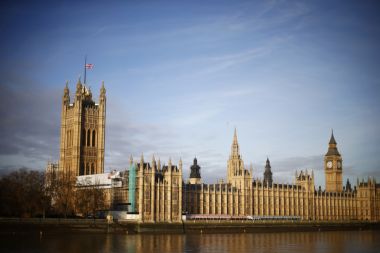Christians more likely to vote Conservative at the general election - poll

Christians are much more likely than the general population to vote Conservative at the general election, according to recent surveys – but the overall religious vote goes to Labour.
Polls conducted by Populus and Lord Ashcroft have been analysed by Clive Field for British Religion in Numbers. Both of them put the Conservations on more than 29 per cent, compared to 23 or 24 per cent for the whole population. The Populus poll put Labour on only 22.4 per cent and Lord Ashcroft's on 26.1 per cent.
However, these proportions are dwarfed by the very sharp distinctions in the Muslim community: each poll found around 60 per cent of Muslims would support Labour, with only 9.7 (Populus) and 8.8 (Ashcroft) supporting the Conservatives.
Those of no religion also expressed greater support for the Labour Party. In the Populus study 25.4 per cent supported Labour, and 15.8 per cent support for the Conservatives, with comparable results from Lord Ashcroft's survey. Non-Christian religious voters also expressed a preference for Labour – 33 per cent of voters in both surveys ranked them ahead of Conservatives, Lib Dem and UKIP.
Dr Field said the Muslim preference for Labour "will partly be a function of their relatively deprived socio-economic status and thus of class-based voting. Other non-Christians are also disproportionately Labour supporters."
Conversely, Colin Bloom, chief executive of the Conservative Christian Fellowship, said: "There are many Muslims that will be voting Conservative," adding that the Conservative Muslim Forum is "flourishing".
UKIP had a fairly broad appeal across the religious spectrum, apart from among Muslims: while 13-15 per cent of Christian intended to vote for the party, only between one and three per cent of Muslims did.
Both polls were conducted in February 2015. The Populus poll interviewed 14,201 voters, and Lord Ashcroft's included 8,072 people.
Bloom did say it was "dangerous" to comment on the results of polls, since the only one that matters is the general election itself on May 7.
However, he said: "There are strong reasons why Christians can feel comfortable voting for the Conservatives – their effort in terms of strengthening the family, the record levels of employment." He added that "there's a biblical mandate that says work is a good thing."
"We also have a great story around supporting international aid," Bloom said. "We have a great story around international religious freedom; the work that we're doing in adoption and fostering, which was neglected for ages. These are all reasons why Christians would support the Conservatives."
There have been suggestions that the introduction of same-sex marriage would damage Christian support for the Conservative Party, though it appears that this may not be borne out at the election.
Bloom said: "Christians are thinking people; they will know that two thirds of the Conservative Parliamentary Party voted against same-sex marriage, whereas almost the entirety of Labour and Lib Dems supported it. It's not a party issue. Who would be the party that Christians would go to if they didn't like same-sex marriage? There isn't one."
The Christian preference for the Conservative Party shown by this latest data differs slightly from another recent survey of the voting intentions of evangelical Christians conducted by the Evangelical Alliance.
The EA survey, which was done in August and September 2014, suggested that there had been a decline in support for the Tories since 2010 and an increase in support for Labour among evangelicals. It also showed fractionally less support for the Conservative Party among evangelicals than the general population; with 28 per cent support for the Conservatives and 31 per cent for Labour among evangelicals in the EA survey, compared to 34 per cent support for the Conservatives and 33 per cent for Labour among the general population, according to a September 2014 Ipsos MORI poll.











